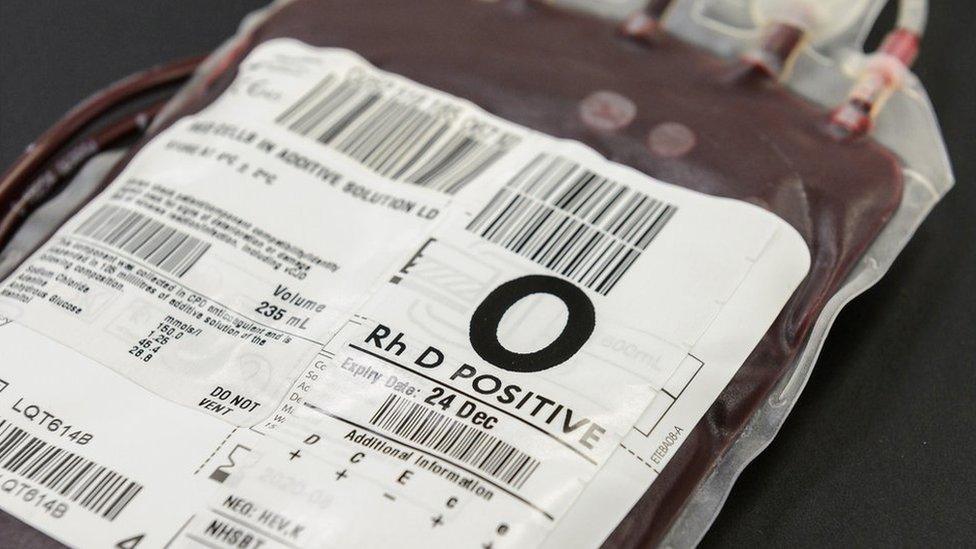Shortage of blood supplies prompts amber warning
- Published

Blood types most in demand are O positive and O negative
Blood supplies have fallen to a critically low level in England, meaning hospitals may have to postpone some non-urgent operations.
An amber alert is now in force to ensure blood reaches patients most in need.
A lack of staff to care for people giving blood was partly to blame, NHS Blood and Transplant (NHSBT) said.
The NHS usually has six days' worth of blood stocks, but levels are currently due to fall below two days.
It is urging people to come forward and fill empty appointments at large donor centres.
O blood groups are in particular demand because O positive is the most common blood type, and everyone can receive O negative blood in an emergency or if a person's blood type isn't known.
The public can go to to check where appointments are available.
'Give blood'
Wendy Clark, from NHSBT, said asking hospitals to limit their use of blood was "not a step we take lightly".
"This is a vital measure to protect patients who need blood the most," she said.
The plan is now to build up stocks with the help of donors.
"If you are O Positive or O Negative in particular, please make an appointment to give blood as soon as you can. If you already have an appointment, please keep it," Ms Clark said.
Blood supplies have been a challenge since the pandemic because of staff shortages, staff sickness and a change in people's behaviour, which means they are less likely to visit donation centres in towns and cities, according to NHSBT.
Staff are being recruited quickly to fill vacant positions and open up more appointments, and agency staff are also being sought.
Individual hospitals will have to decide how to manage the shortage of blood, but the types of surgery that could be postponed are all non-urgent, such as hip replacements.
Around 1% of all surgery could be affected, NHSBT says.
Hospitals will continue to carry out any urgent, emergency or trauma surgery, cancer surgery and transplant surgery.
But the blood shortage is only likely to increase the record 6.84 million people already waiting for hospital treatment or operations in England - nearly one in eight people.
Overall NHS blood stocks stand at 3.1 days but levels of O-type blood have fallen to below two days - the threshold for an amber alert.
As blood can only be stored for 35 days, there is a constant need for donations - and a need for specific blood types.
Related topics
- Published8 September 2022
- Published5 July 2022